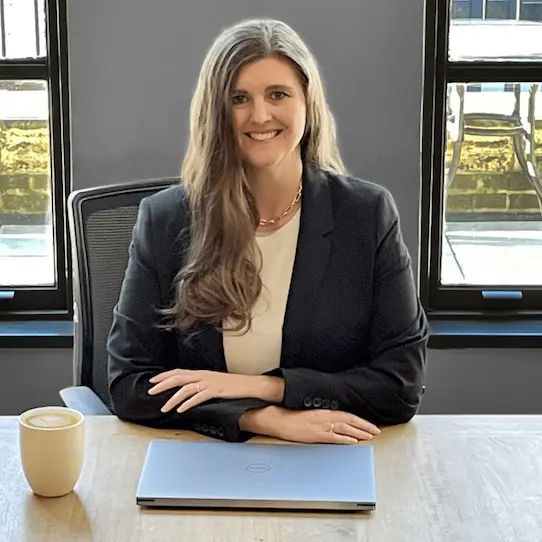
Amy Brownell will have your revenue potential steaming like microwaved broccoli after she qualifies you to become a chief financial officer (CFO).
Imagine making 7x what you do now, all while working fewer hours.
And yes, anyone can learn how to do this.
I could just vomit from excitement, Amy. Tell me more.
Amy says she’s the founder of CFO & Advisory Academy, with over 20 years of finance experience working with businesses of all shapes, sizes, and situations.
Right now, you’re probably thinking:
- This sounds a little too good to be true.
- “I’m just a bookkeeper – I’m not qualified to be a CFO.”
- Should people who wear watches on their right hand be allowed to vote?
Amy addresses the first two, assuring us that this is happening every day for average people just like you.
Okay, but what do CFOs and advisors even do?
They manage the financial aspects of a business and provide advice and recommendations for growth and profitability, Amy explains.
More specifically, you would:
- Increase revenue and profit
- Track incoming and outgoing cash
- Make better business decisions
- Develop growth strategies
- Solve business problems
- Increase cash and efficiencies
- Optimize marketing spend
- Plan for the future
Great, I’m sweating through my clothes from imposter syndrome.
Relax, Amy says. Most business owners are just winging it, going with their gut, not data.
They’re too busy running the business to focus on finances and growth.
And besides, they don’t have the expertise. But you do – assuming you’re a bookkeeper, accountant, CPA, or finance professional.
What’s sad is… 50% of small businesses go belly up within five years.
So let’s set the record straight: They need you more than you think, Amy pleads.
But don’t just take her word for it – check out these CFO and Advisory Academy reviews:
- Runjhun fattened her income by six figures in six weeks.
- Ben doubled his monthly income from just one of his existing bookkeeping clients.
- John expanded from bookkeeper to advisor, breaking through his glass ceiling in a matter of weeks.
- And Buthania signed her first client within five weeks.
Why kill yourself to death juggling more clients when you could just add CFO and advisory services?

According to Intuit, the maker of QuickBooks, advisors earn $52 per hour more than the average bookkeeper.
Why is that?
Well, the stakes are higher than helicopter blades. Advisors aren’t just crunching numbers; they’re the ones who can spot the iceberg before it hits, saving the business from going under and poor Leo from becoming a popsicle.
Here’s another way to think about it:
Bookkeepers focus on the past, while advisors anticipate the future.
As competition, software, and AI commoditize bookkeeping, driving down what you can charge, CFOs and advisors charge based on the value they create.
Okay, so I’ve got a question:
What if you’re just starting out? Why would someone pay you a premium for advisory services if you’ve never advised before?
Amy shucks that objection like an ear of corn, reasoning: “Because you’re able to provide time, energy, and a personalized experience that someone with more clients simply can’t.”
And if they say they can’t afford it?
Amy recommends flipping it around: “You can’t afford not to have advisory services. The cost of plateauing and delaying profitability is too high.”
Sheesh.
I mean, if Amy accidentally grabbed your Starbucks from the mobile pickup area, it’s hers now.
She promises… it’s easy to learn, implement, and sell advisory services – and that’s on God.
So if you’re ready to 7x your revenue while working less and having more impact, CFO & Advisory Academy has its arms stretched out for a hug.
Book your free strategy session to discuss pricing and learn more.
As for me?
I still feel like I could pitch this until life leaves my body, my skin rots, and my bones turn to dust, and these business owners would just see right through me, like, “Nah, we’re good.”